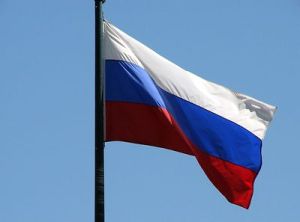By Dilara Garaeva (Editor)
I wrote this post on 7th March 2012, just after going to the Russian embassy in London to vote in the Russian presidential elections. At the time I was studying for my Master’s at the University of Bristol. As a reminder: these were the elections in which Putin was elected, after being Prime Minister under Dmitriy Medvedev’s presidency. In this post I write my reflections on the elections, the presidential campaigns, and my general understanding of the 'imperfection of democracy’ and federalism in the context of Russian realities. Since this post is a contemplation of personal experience, rather than an analytic insight into the world of Russian politics, sources are not referenced. However, do feel free to ask me if you have any questions on the sources i draw from, and/or if you want to share your thoughts and comments, by posting a comment in the box below.
Note: I originally come from the Republic of Tatarstan, and I am an ethnic Tatar. Tatars constitute a majority of the Tatarstan’s ethnic population.
7th March 2013: Experiencing Russian Elections
I went to vote in the elections in the end, this Sunday. I voted for a new candidate, M. Prokhorov, who is a successful businessman in Russia, now trying his luck in the political field. I know that Putin will win, but still it feels better now that I have fulfilled my citizen's duty (it sounds weird to people in UK that we still go to vote when the results are clear in advance). A lot of people in Russia would speculate that Prohorov will receive votes because he is the only plausible alternative to Putin, since the other candidates (the leaders of the Communist and the Liberal Democratic parties) have been around since Yeltsin's time and are not even seen as an opposition, but rather as an "opposition view", so to say. However, I think the emerging middle class voted for him because he is seen as a representative of the businesses that emerge locally and are directed towards local development of industries rather than the simple extraction of resources, which is the business model of the large gas and oil companies. It is very difficult for such firms to emerge because of the notorious presence of corruption.

It is ironic, in a way, that the so-called "national republics" of the Russian Federation (where the majority of non-ethnic Russians reside, Tatarstan is one of them) have provided the most votes for Putin. It has led some movements to speculate that Putin has become the leader of "other (non-ethnic) Russians". It is true that Putin suits the governments of national republics, of which the republic of Chechnya is the primary example, because the National (Russian) budget invests a lot of money in them. But what the Russian government does not do is oversee how the money is being spent locally. Furthermore, the Russian government needs the resources that those republics have. This is evident when one notes that there are no local companies now, only corporations with headquarters in Moscow (there used to be some in Tatarstan, but they have all been sold to corporations in Moscow). What national republics do not realise is that they are now "hooked" politically and socially by the Russian government, because their economics are no longer their own. So in the long term they will not have the power to generate laws protecting their national identity (which is important for non-ethnical Russians). And economically they will not have a say in the way their resources are being used.
Of course, that is only one part of the story, because no matter how much the economies of national republics are centralised, such areas are still relatively better off compared to other regions. The income that remains is enough to maintain a relatively good standard of living. The other part of the puzzle, is that with centralisation the regions of Russia that do not have any resources, and those that are geographically far from the centre, do not get anything from it. All the generated income, which in theory should be redistributed by the national government in Moscow to all regions in Russia, does not get where it needs to be. And this is what the recent mass protests in Moscow and St Petersburg have been about in the deep sense: the failure to adequately redistribute wealth to the entire citizenry, and the reason for such failure - corruption. Arguably, in order to reduce corruption levels, we need reassess the Russian legal system and constitution because the legal landscape is constructed in such a way that it invites people to to conclude that "the only way to achieve something, is to go around it". Incidentally, that is the how local national governments perceive and use it too.
Anyway, due to amendments to the constitution, Putin is going to be a president for 6 years now instead of 4. We'll see how it goes. Will I vote in the next elections? Yes, of course, because I still believe in democracy in my beloved imperfect country.

